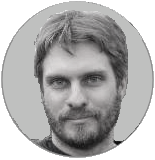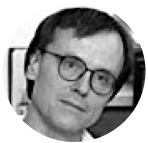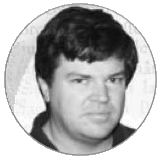|
Invited speakers
James A. Bednar -
Tobi Delbrück -
Olivier Faugeras -
Yves Fregnac -
Yan LeCun -
Heiko Neumann -
Guy Orban -
Simon Thorpe
|
James A. Bednar


Institute for Adaptative and Neural Computation, School of Informatics
The University of Edinburgh
James A. Bednar is the Director of the University of Edinburgh EPSRC Doctoral Training Centre in
Neuroinformatics and Computational Neuroscience, which has over 50 currently funded
PhD students working in these areas. His Ph.D. in Computer Science is from the University
of Texas at Austin, and he also has degrees in Philosophy and Electrical Engineering.
He leads the Computational Systems Neuroscience Group in Edinburgh, focusing on computational
modeling of the development and function of mammalian visual systems. He is a co-author of the
monograph "Computational Maps in the Visual Cortex" (Springer, 2005), and is the lead author of
the Topographica cortical modeling software package (see topographica.org).
He has been on the Board of Directors for the annual international Computational Neuroscience Meeting,
and is a Member of the Review Editorial Board for the journals Frontiers in Neuroinformatics
and Frontiers in Computational Neuroscience.
|

|
|
Tobi Delbrück


Institute for Neuroinformatics, Zurich, Suisse
Tobi Delbrück is professor of physics at ETH Zurich in the Inst. of Neuroinformatics.
He received his BSc in physics and applied mathematics from UCSD in 1986 and a PhD from Caltech in 1993.
He worked for 5 years on electronic imaging at Arithmos, Synaptics, National Semiconductor, and Foveon.
He has been awarded 9 IEEE awards, including the 2006 ISSCC Jan Van Vessem Outstanding European Paper Award.
He co-organizes the Telluride Neuromorphic Cognition Engineering summer workshop and the live demonstration
sessions at ISCAS, and is currently chair of the CAS Sensory Systems Technical Committee and associate
editor of the IEEE Transactions of Biomedical Circuits and Systems. His current interests include
bio-inspired and neuromorphic sensory processing.
|

|
|
Olivier Faugeras


Inria, Neuromathcomp project team, Sophia Antipolis, France
Olivier Faugeras holds a PhD in Computer Science and Electrical Engineering from the University of
Utah and a Doctorate of Science in Mathematics from Paris VI University.
He is currently a Senior Scientist at INRIA (Mathematics, Informatics), where he leads the
NeuroMathComp project team, joint scientific venture between Inria and the JAD Laboratory
(Mathematics) at Nice Sophia Antipolis University.
His research interests are in mathematical neuroscience, i.e. in applying mathematics to model
populations of neurons. The kinds of mathematics that are important in this area encompass the
theory of dynamical systems and the bifurcations of their solutions in the deterministic and
stochastic frameworks as well as the theory of stochastic processes and large deviation theory.
Applications of his work include computer and biological visual perception, neuronal diseases,
plasticity and learning, models of functional imaging modalities (MR, MEG, EEG).
In 2011, together with Stephen Coombes from the University of Nottingham, he started the Open
Access Journal of Mathematical Neuroscience (JMN) published by Springer.
In 1989 he received the "Institut de France - Fondation Fiat" award for his work in Vision and
Robotics and in 1998 the "France Telecom" award for his work on Computer Vision and Geometry,
both from the French Academy of Sciences
In 1998 he was elected a member of the French Academy of Sciences and was in 2000 one of the
founding members of the French Academy of Technology.He has contributed to start the companies
Noesis and RealViz and is a member of the World Technology Network.
In 2009 he was awarded by the European Research Council (ERC) an advanced grant entitled
"From single neurons to visual perception" dealing with the mathematical foundations of neuroscience.
|

|
|
Yves Fregnac


UNIC, Gif-sur-Yvette, France
Yves Frégnac is Research Director (Exceptional Class) at the Centre National de la Recherche
Scientifique. He is currently Head of the CNRS interdisciplinary department that he has founded in
2000 (Unité de Neuroscience, Information et Complexité (UNIC)) and co-director of the Federative
Institute Alfred Fessard of Neurobiology (INAF) in Gif sur Yvette. He is also Full Professor in the
Department of Humanities and Social Sciences at the Ecole Polytechnique, near Paris. His
interdisciplinary research explores the phenomenon of complexity related to the natural dynamics of
biological computation in visual cortical networks. He was awarded the Grand Prix thématique de
l'Académie des Sciences (Prix Jaffé) in 1999 and the Grand Prix de l'Institut de France
(Prix Louis D.) in 2008.
|

|
|
Yann LeCun


New York University, USA
Yann LeCun is Silver Professor of Computer Science and Neural Science
at the Courant Institute and at the Center for Neural Science of New
York University. He obtained a PhD from Université P&M Curie (Paris)
in 1987, after an engineering degree at ESIEE (Paris). following a
postdoc at the University of Toronto, he joined AT&T Bell Laboratories
in New Jersey. in 1996, he became head of the Image Processing
Research Department at AT&T Labs. He joined NYU as a professor in
2003, after a brief tenure at NEC Labs in Princeton. His current
interests include machine learning, computer perception and vision,
mobile robotics, and computational neuroscience. His image
recognition technology, based on convolutional networks, has been
deployed by AT&T, Google, Microsoft and NEC to read handwriting, and
to detect and recognize objects and people. His image compression
technology, called DjVu, is used by many content providers to
distribute scanned documents online.
|

|
|
Heiko Neumann


Institute of Neural Information Processing, Ulm University, Ulm, Germany
Heiko Neumann graduated in Computer Science at University of Hamburg and conducted postdoctoral
research and training at Boston University (Center for Adaptive Systems). With his appointment
as Professor in Computer Science he is currently leading the Vision and Perception Science
research group in the Institute of Neural Information Processing at Ulm University.
The research in the lab focuses on the modeling of neural mechanisms of visual information
processing in primates ranging from early and intermediate level stages of form and motion
processing to higher perceptual and cognitive stages. These investigations include analysis
of biological motion patterns, social signal analysis, and visual routines involved in task-related
scheduling and decision-making mechanisms in vision. The group also conducts psychophysical
experiments and develops application oriented vision algorithms in various domains.
Heiko Neumann is co-founder of the competence center for Perception and
Interactive Technologies (PIT) at Ulm University.
|

|
|
Guy Orban


Universita degli studi di Parma, Italy -- KU Leuven Medical School, Belgium
Guy A Orban holds an MD degree, an engineering degree in applied mathematics, and a PhD in Neurophysiology.
He is presently emeritus Professor of the KU Leuven Medical School and invited professor at the University of Parma Medical School.
He coordinated the research at the Laboratorium voor Neuro-en psychophysiology for more than 30 years, developing it
into an interdisciplinary center for study of visual cortical function. He was the coordinator of the first EU grant
devoted to biological and computer vision (Insight) from 1989-1993, visiting professor at the ENS from 2003-2010 and
held the European Chair at the College de France in 2006-2007. He has published more than 260 papers on vision and
visual processing in international journals. His present research interests center on action understanding, stereopsis,
motion processing and homology.
|

|
|
Simon Thorpe


CERCO, Toulouse, France
Simon Thorpe is the Deputy Director of the Brain and Cognition Research Center (CerCo),
a CNRS laboratory at the University of Toulouse. He studied Psychology and Physiology at
Oxford University where he obtained his doctorate with Edmund Rolls in 1981.
After a year as a postdoc in Canada, he moved to France where he has been working as a
CNRS researcher for nearly 30 years. He has studied many aspects of computation in the brain,
using methods that include neurophysiology, functional brain imaging and psychophysics,
as well as theoretical and stimulation studies. In 1999, he and his students created SpikeNet Technology,
a high-tech spin-off that develops real-time image processing systems using bioinspired
processing strategies based on his experimental work.
|

|
|
|

